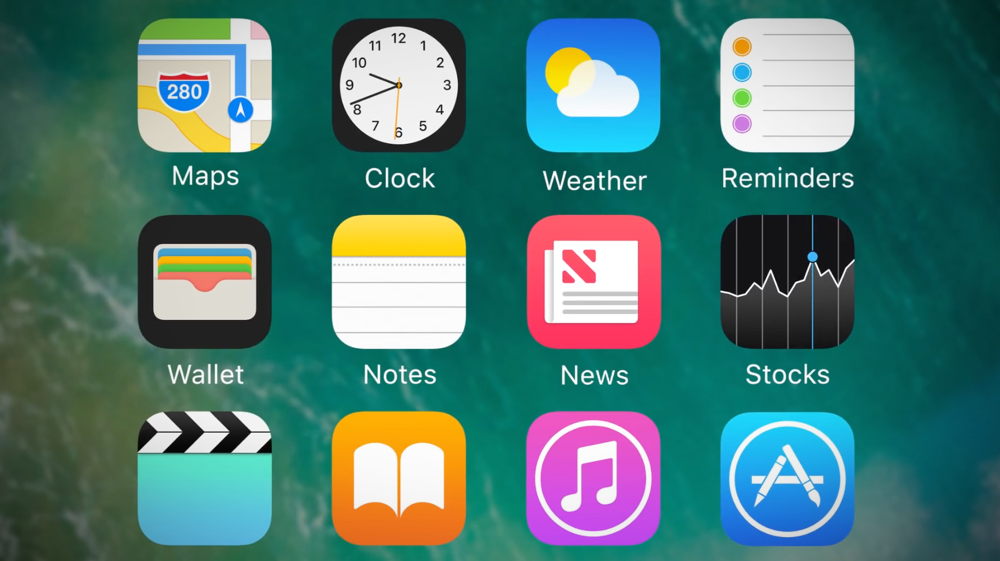The Value of Using Stock Apps

This is part 1 of a two part series. Read the followup on the value of third party apps here.
I was chatting with Andy Nicolaides recently about task managers (as you do), and he was telling me how he tried using Things again after my recent article about how I use the app, and he said it didn’t work for him and he’d gone back to using Reminders. He also mentioned how he sometimes feels like his preference for using stock apps for as much as possible might be keeping him from enjoying some great third party apps. As someone who tends to prefer third party apps, Andy and I are approaching things from completely different angles.
That said, there are some definite advantages to using stock apps and I wanted to give those reasons a quick shout out here.
1. Here today, here tomorrow
How many photo library managers can you think of that have come and gone since iCloud Photo Library launched in 2015? How many task managers have either disappeared or languished since Reminders launched in 2011? How many mail services have disappeared since Apple Mail came out in 2007?
The advantage of using stocks apps (on iOS, at least) is that they generally have a longer life than third party options. There are things like OmniFocus that were around before Reminders and are still going strong, but that’s the exception, not the rule.
2. Predictable business models
This one doesn’t bother me as much as it does some, but the nice thing about something like Apple Notes is that you know it’s going to be free forever. You know iCloud Photo Library is going to cost you however much storage you need to save your photos.
The odds of Notes switching to a subscription model next year is basically zero. Also, if you start using it today, it’s not like Apple is going to release Notes 2.0 in a few months and you’ll need to pay again to get the updates.
Apple and third party devs have different business models, and each makes sense for each party, but from a straight up consumer basis, the one that is more likely to stay the same for longer is more appealing.
3. It’s just plain cheaper
- Bear, $15/year
- GoodNotes, $7.99 once
- Notability, $8.99 once
- Apple Notes, free forever
Say what you will about the benefits of those other apps, but there’s no getting around the fact that since the cost of developing Apple Notes is absorbed by the income Apple gets from hardware sales, Notes is able to be free to the end user. You really need to get something significant out of the paid options to make them worth your while.
4. Keeping up with new OS features
Did your photo manager, email client, task manager, note taker, web browser, camera app, music player, news reader, podcast player, calendar, calculator, and messaging app have dark mode enabled on the day iOS 13 launched last year? If you used all stock apps, the answer is yes! If you used third party apps, then the answer is likely no, not all of them.
Or look at Google Docs/Sheets, which Connected has turned into a meme in asking each week whether it has added a fundamental feature that iOS enables (split view before, multi-window now). Months and months go by and then they finally add it, usually around the time the next version of iOS is in beta and has something else they won’t get to for a year. If you used Pages or Numbers, they supported those almost from day one.
5. Predictable Privacy
Is your email app selling your email data to advertisers? Do you trust putting personal information in your notes app? What if those apps are acquired by a company you don't trust tomorrow?
By buying into the Apple ecosystem, you probably trust Apple more than most companies. Again, their business model is selling you hardware and some premium services, not selling your data for profit. Lots of third parties are excellent here too, but you really have to check for each one if you want to be sure.
Takeaway
Look, my iPhone and iPad home screens are full of third party apps. For me, the benefits they allow (especially having web interfaces and working cross-platform) provide me value, but there is definitely a strong case to be made that it’s safest and cheapest to use stock apps unless you have a good reason not to do so.